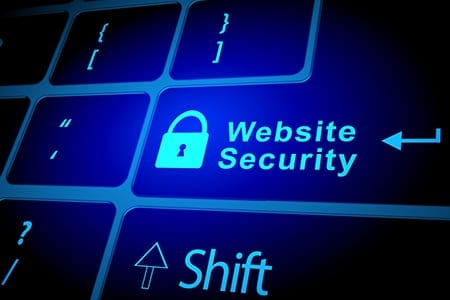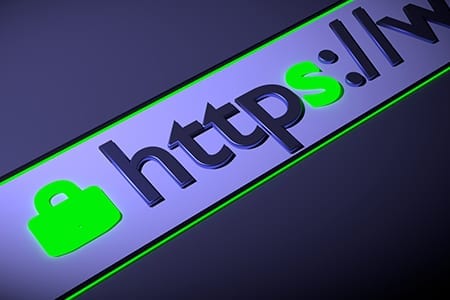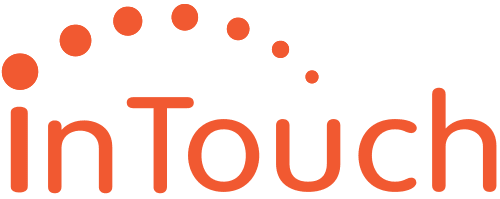Website security sounds like a complex, fickle thing. In cyberspace, everything is changing at lightning speed, so how can anyone ever keep up with all the latest malware, viruses, and malicious scripts? Well, truth be told, no one can—the good guys, or the bad. There, did we put your mind at ease?
Maybe not entirely. Let us try again.
While there is no way to keep up with every single new threat every second of the day, there’s plenty of things we do here at InTouch to ensure your site is safe and secure and less vulnerable to the latest attacks. Nothing is 100% in the digital sphere, but we make sure we’re darn close. Feel better?
Safety First: Our Website Security Measures
Each website is multilayered and therefore requires multiple layers of security. At InTouch, our developers use only the best tools, so you can rest assured that everything we do at every layer is done to the highest standard. Read on to learn more about our tools and security protocols that keep your site, your visitors, and you safe in the cyber realm.
1. WPengine Hosting: This is the largest WordPress host on planet Earth (no joke). It’s used by industry giants—think National Geographic and Instacart—so you know it’s good. Our standards match National Geographic’s standards. That’s pretty cool, isn’t it?
2. SSL (Secure Socket Layer) certificates and HTTPS: These go hand-in-hand. An SSL certificate means data being received or sent between your site and a user is all encrypted, so no third parties can hijack the information. This is particularly important when your user is filling out a form on your site with their personal information on the line.
But even then, we take an extra precaution: our standard is to never collect overly personal information. No Social Security Numbers, no credit cards, no driver’s license numbers, nada! Name, email, phone, and maybe an address are as personal as we get.
3. Nightly back-ups: Routine back-ups mean your site and all its information are consistently safeguarded. If on the outside chance your site did suffer some cyber-attack, we could revert it back to its former glory before the malicious software ever touched it.
4. Multiple servers: The server stores information for your site. So, if it goes down, so does your site. That’s why we use multiple servers, all located in the US of A. If one does fail, no biggie. The others will take over magnificently (and instantly).
5. Secure, updated plugins: Plugins are tools that help your website run smoothly and perform the functions you need them to. However, like any software, they need regular updates and security patches to keep those nasty ole hackers from taking advantage. Our team keeps your plugins up to date, and only installs the best, securest plugins to begin with!
6. Secure passwords: We know, we know, you have enough passwords already. But this is essential. We only use secure passwords for login and stress that you do the same. Often a system-generated one is your best bet. Additionally, a password that is unique to the site helps cut down on the chances a hacker will sort it out.
7. CDN (content delivery network): Now, we admit we’re being a little extra cautious here. A CDN isn’t an absolute necessity, but we consider it a highly valuable enhancement. It offloads content on your site away from the server, driving less calls to the same server. This allows your site to download faster for a better user experience. Not only that, but it also protects against a DDoS (distributed denial of service) attack which can flood your site with automated traffic.
8. 24/7 Monitoring: Our developers don’t sleep. Okay, we kid, of course they do! The point is, they are always aware of your site’s performance. If something goes wrong, our team receives full reports in the form of multi-tiered notifications. So, we’re on the problem immediately and can fix it before you even knew it was there.
So, even after all that, you still might be on the fence—why trust us? Well, we are experts: we stay up to date with all the latest trends via a range of channels. We read web security news and blogs, and we venture to the biggest industry conventions. We anticipate the latest security threats and work to secure sites against them. Our team is dedicated to web security.
 What You Can Do
What You Can Do
We do a lot for your website, but there’s a lot you can do, too.
Secondly, always create logins with secure passwords unique to your site.
Thirdly, make sure you have a trusted security program downloaded on your computers, particularly the one from which you’ll be accessing your site the most.
Finally, if there is ever anything you don’t understand about your web security, ASK US. We’re here as a resource for you. When you call us, you’ll be directed straight to a developer so you can have a conversation one-on-one. No jumping around from person to person to person…
And just one more little piece of advice before we let you go. Whenever you’re out and about in the worldwide web, think about what you’ve learned here. If you do one thing, do this: Check for that little padlock symbol on the upper left corner of the URL that shows the site has an SSL certificate (it should have HTTPS, too); and be suspicious of websites that don’t have the icon. That’s a great place to start.
Reviewed by: Mary B. on Nov. 15, 2019
